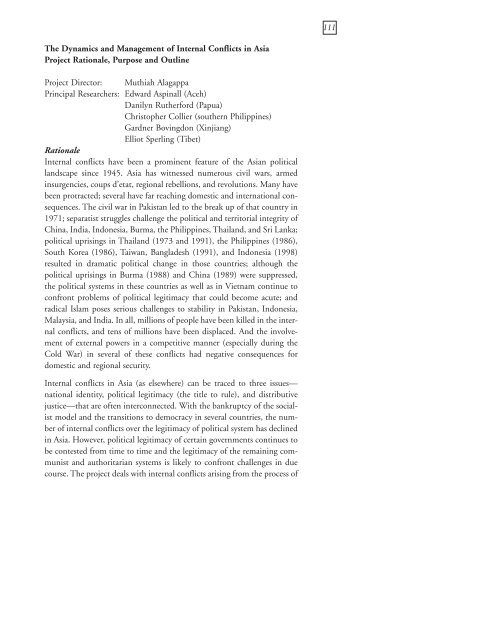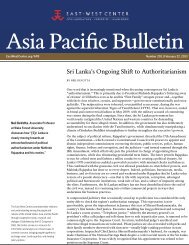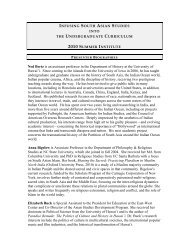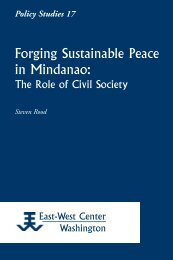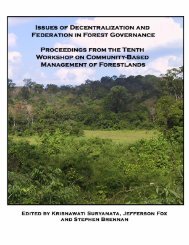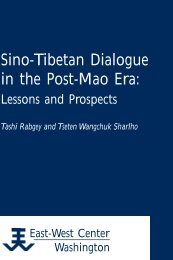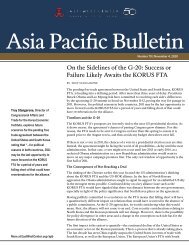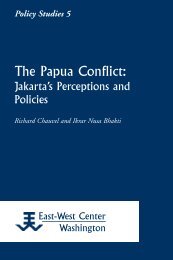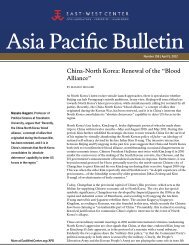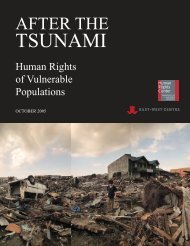Constructing Papuan Nationalism: History, Ethnicity ... - ScholarSpace
Constructing Papuan Nationalism: History, Ethnicity ... - ScholarSpace
Constructing Papuan Nationalism: History, Ethnicity ... - ScholarSpace
- No tags were found...
You also want an ePaper? Increase the reach of your titles
YUMPU automatically turns print PDFs into web optimized ePapers that Google loves.
111The Dynamics and Management of Internal Conflicts in AsiaProject Rationale, Purpose and OutlineProject Director: Muthiah AlagappaPrincipal Researchers: Edward Aspinall (Aceh)Danilyn Rutherford (Papua)Christopher Collier (southern Philippines)Gardner Bovingdon (Xinjiang)Elliot Sperling (Tibet)RationaleInternal conflicts have been a prominent feature of the Asian politicallandscape since 1945. Asia has witnessed numerous civil wars, armedinsurgencies, coups d’etat, regional rebellions, and revolutions. Many havebeen protracted; several have far reaching domestic and international consequences.The civil war in Pakistan led to the break up of that country in1971; separatist struggles challenge the political and territorial integrity ofChina, India, Indonesia, Burma, the Philippines, Thailand, and Sri Lanka;political uprisings in Thailand (1973 and 1991), the Philippines (1986),South Korea (1986), Taiwan, Bangladesh (1991), and Indonesia (1998)resulted in dramatic political change in those countries; although thepolitical uprisings in Burma (1988) and China (1989) were suppressed,the political systems in these countries as well as in Vietnam continue toconfront problems of political legitimacy that could become acute; andradical Islam poses serious challenges to stability in Pakistan, Indonesia,Malaysia, and India. In all, millions of people have been killed in the internalconflicts, and tens of millions have been displaced. And the involvementof external powers in a competitive manner (especially during theCold War) in several of these conflicts had negative consequences fordomestic and regional security.Internal conflicts in Asia (as elsewhere) can be traced to three issues—national identity, political legitimacy (the title to rule), and distributivejustice—that are often interconnected. With the bankruptcy of the socialistmodel and the transitions to democracy in several countries, the numberof internal conflicts over the legitimacy of political system has declinedin Asia. However, political legitimacy of certain governments continues tobe contested from time to time and the legitimacy of the remaining communistand authoritarian systems is likely to confront challenges in duecourse. The project deals with internal conflicts arising from the process of


